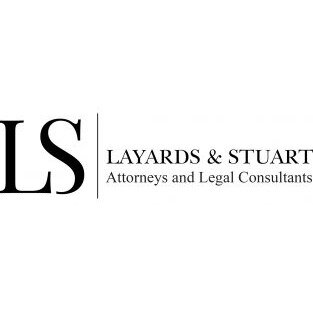Best Structured Finance Lawyers in Sri Lanka
Share your needs with us, get contacted by law firms.
Free. Takes 2 min.
Or refine your search by selecting a city:
List of the best lawyers in Sri Lanka
About Structured Finance Law in Sri Lanka
Structured Finance in Sri Lanka refers to a sophisticated range of financial transactions designed to help companies, banks, and investors achieve specific goals, such as raising capital, managing risk, or improving liquidity. This area of finance typically involves pooling financial assets and repackaging them into securities that are sold to investors. Common instruments include asset-backed securities, mortgage-backed securities, and syndicated loans. In Sri Lanka, Structured Finance transactions are guided by local financial market regulations, the Securities and Exchange Commission of Sri Lanka, the Central Bank, and the Companies Act, all of which help promote a stable financial environment.
Why You May Need a Lawyer
Structured Finance transactions are complex and often involve multiple parties, intricate legal agreements, and significant regulatory oversight. Hiring a lawyer skilled in Structured Finance can be crucial in situations such as:
- Structuring and negotiating syndicated loans or asset-backed securities
- Drafting, reviewing, and negotiating financing agreements
- Ensuring compliance with the Central Bank and Securities and Exchange Commission regulations
- Managing legal risks associated with cross-border structured finance transactions
- Advising on tax implications and optimal transaction structures
- Facilitating mergers, acquisitions, or refinancing involving complex structured finance mechanisms
- Resolving disputes or defaults related to structured finance instruments
Local Laws Overview
Structured Finance in Sri Lanka is governed by a combination of legislation and regulatory guidelines. The most important legal and regulatory aspects include:
- Securities and Exchange Commission Act: Oversees securities markets, including asset-backed securities and other structured products.
- Companies Act No. 7 of 2007: Regulates company formation, governance, and financing activities relevant to structuring finance deals.
- Central Bank Regulations: The Central Bank of Sri Lanka supervises financial institutions and provides guidelines on lending, investment, and related risks.
- Banking Act No. 30 of 1988: Regulates licensed banks that often participate in or arrange structured finance transactions.
- Financial Reporting Standards: Adherence to Sri Lankan Accounting Standards when reporting structured finance transactions is mandatory for transparency.
- Foreign Exchange Act: Controls cross-border transactions, especially relevant when foreign parties are involved in Structured Finance deals.
Understanding these laws is vital to ensure that structured finance deals comply with local requirements and avoid legal complications.
Frequently Asked Questions
What is Structured Finance?
Structured Finance involves complex financial transactions that use pooled assets or cash flows to create new financial products, helping companies raise capital, manage risks, or improve their balance sheets.
Who are the main participants in Structured Finance?
Typical participants include commercial banks, investment banks, corporate borrowers, investors, and government agencies. Lawyers, auditors, and financial advisors also play key roles.
What types of assets can be securitized in Sri Lanka?
Common assets include mortgages, auto loans, credit card receivables, leases, and trade receivables. The assets must meet certain criteria set by regulators.
Is Structured Finance regulated in Sri Lanka?
Yes, structured finance is regulated by the Securities and Exchange Commission, the Central Bank of Sri Lanka, and other relevant authorities to protect investors and ensure financial system stability.
How do I ensure compliance with local Structured Finance regulations?
Consult a lawyer with expertise in structured finance, adhere strictly to all legal and regulatory filing requirements, and maintain transparent documentation.
What legal risks are associated with Structured Finance?
Risks include potential non-compliance with regulatory standards, tax complications, disputes between parties, and challenges related to asset performance and creditworthiness.
Can foreign entities participate in Structured Finance transactions in Sri Lanka?
Yes, but foreign entities must comply with the Foreign Exchange Act and may require approval from the Central Bank or other authorities, depending on the transaction structure.
Is court approval required for Structured Finance deals?
Most structured finance transactions do not require direct court approval, but some may need regulatory registration or oversight, especially if involving public issues.
What are common legal agreements used in Structured Finance?
These include loan agreements, asset purchase agreements, trust deeds, servicing agreements, subscription agreements, and disclosure documents.
How long does it take to set up a Structured Finance transaction?
The timeframe depends on the complexity of the deal, the nature of the assets, regulatory approvals, and parties involved. Generally, it may take several weeks to a few months.
Additional Resources
If you need more information or specific advice, the following resources and organizations can be helpful:
- Securities and Exchange Commission of Sri Lanka
- Central Bank of Sri Lanka
- Ministry of Finance - Sri Lanka
- Institute of Chartered Accountants of Sri Lanka (CA Sri Lanka)
- Bar Association of Sri Lanka
- Licensed Commercial Banks and Financial Institutions
Professional associations and regulatory bodies can provide updated guidelines and resources regarding Structured Finance regulations and practices.
Next Steps
If you are considering participating in a Structured Finance transaction or need help understanding your rights and obligations, take the following steps:
- Gather all documents related to your proposed transaction or interest
- Identify your specific legal questions or concerns
- Contact a lawyer who specializes in finance or banking law in Sri Lanka
- Arrange an initial consultation to discuss your needs and objectives
- Follow your lawyer’s advice for drafting, reviewing, and executing agreements
- Ensure ongoing compliance by maintaining communication with your legal advisor and monitoring regulatory changes
Professional legal assistance is invaluable in navigating the complexities of Structured Finance law and ensuring your interests are protected throughout the process.
Lawzana helps you find the best lawyers and law firms in Sri Lanka through a curated and pre-screened list of qualified legal professionals. Our platform offers rankings and detailed profiles of attorneys and law firms, allowing you to compare based on practice areas, including Structured Finance, experience, and client feedback.
Each profile includes a description of the firm's areas of practice, client reviews, team members and partners, year of establishment, spoken languages, office locations, contact information, social media presence, and any published articles or resources. Most firms on our platform speak English and are experienced in both local and international legal matters.
Get a quote from top-rated law firms in Sri Lanka — quickly, securely, and without unnecessary hassle.
Disclaimer:
The information provided on this page is for general informational purposes only and does not constitute legal advice. While we strive to ensure the accuracy and relevance of the content, legal information may change over time, and interpretations of the law can vary. You should always consult with a qualified legal professional for advice specific to your situation.
We disclaim all liability for actions taken or not taken based on the content of this page. If you believe any information is incorrect or outdated, please contact us, and we will review and update it where appropriate.
Browse structured finance law firms by city in Sri Lanka
Refine your search by selecting a city.

















